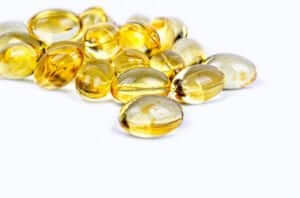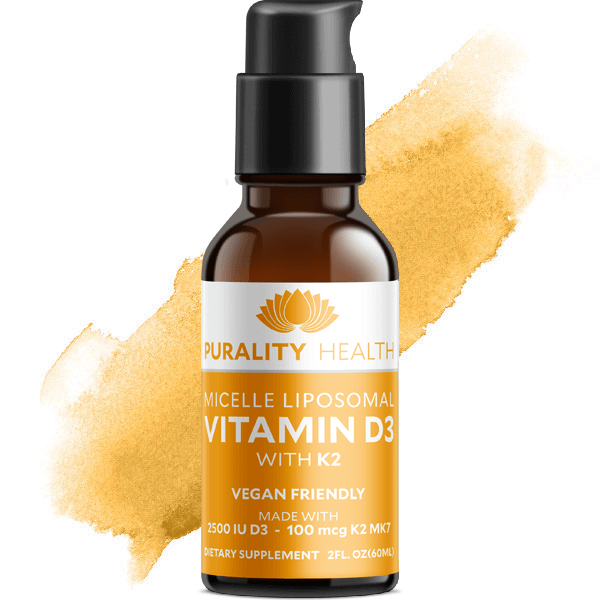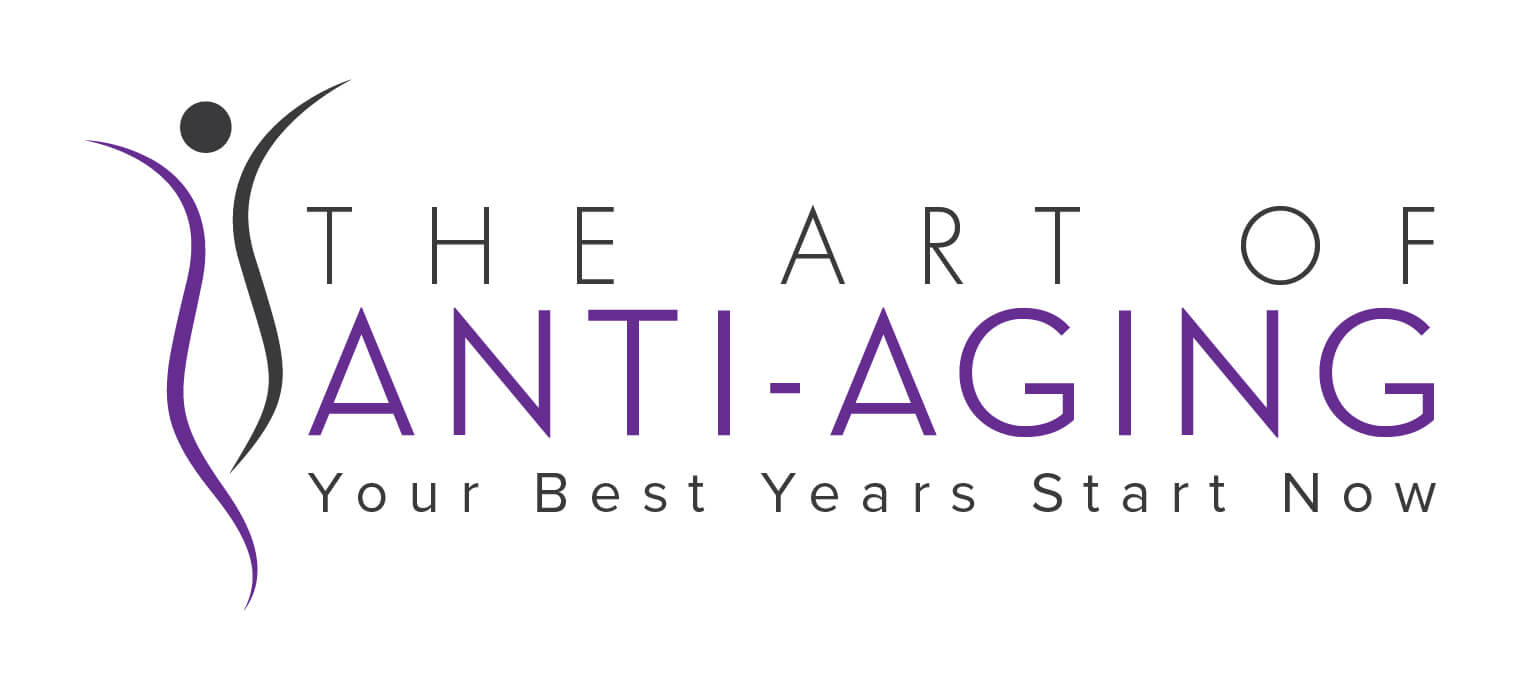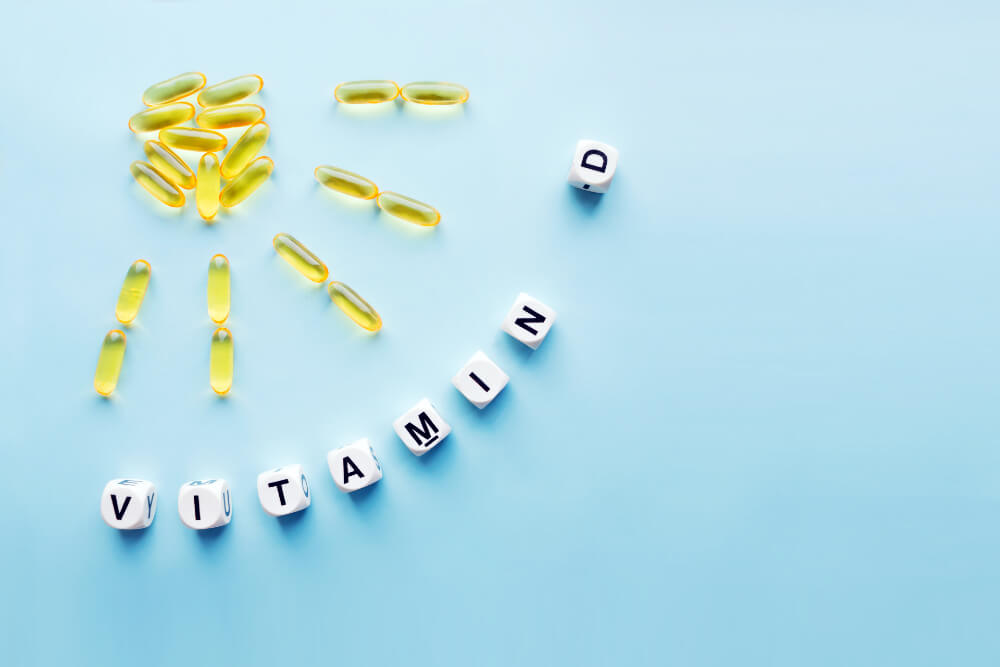Vitamin D is an essential nutrient and one of the most important for your overall health. The list of health benefits of vitamin D is very impressive, which also means that a deficiency can cause serious symptoms.
The main challenge with getting enough of this vitamin is that it’s found in relatively few food sources. But by being intentional, you can get your daily dose of vitamin D up where it should be and enjoy things like better immune health, a better mood, and much more.
Here’s a look at why vitamin D is essential for health, signs of deficiency, and the best natural sources to boost your intake.
An Overview of Vitamin D
In many ways, vitamin D is a very unique nutrient. At a basic level, it’s a fat-soluble vitamin that has been nicknamed the “sunshine vitamin”.
Technically, vitamin D is an “essential” nutrient, which is defined as a nutrient your body needs to get from outside sources, meaning it can’t make these nutrients on its own.
Usually, your body gets essential nutrients when you eat the right types of foods. However, in the case of vitamin D, your body can actually manufacture this nutrient, but only after your skin has been exposed to sunlight (hence the nickname).
Exposure to sunlight is typically where most of your vitamin D will come from. Apart from sunshine, it’s found in varying amounts in only a small selection of foods.
Vitamin D also acts as a hormone in the body, rather than just a vitamin. This is another unique characteristic and is why some benefits of vitamin D include healthy metabolism and improved mood- things associated with hormonal health.
What is the Best Form of Vitamin D?

When sunlight hits your skin, a substance called 7-dehydrocholesterol gets converted into vitamin D3. This usable form of vitamin D then heads to your liver where it converts to calcidiol. Calcidiol is converted into calcitriol in your kidneys, the active form of vitamin D that acts as a hormone.
Any type of vitamin D you consume also has to be converted into the active form within your body.
Naturally created D3 (also called cholecalciferol) is the form that can be most effectively converted by your body. Supplements often contain D3, which is derived from animal products, although some contain another form known as D2.
Vitamin D2 (ergocalciferol) is a vegetarian source of vitamin D. It can also be used by your body, but research indicates it’s not as easily absorbed or converted to its active form as D3.
For effectiveness, D3 is the best choice if you find you need to supplement your vitamin D levels. However, if you prefer the vegetarian option, higher amounts of D2 can also get the job done.
And the good news is, there are now some plant-based forms of D3 available that use the unique plant source called “lichen,” such as Liposomal D3 from Purality Health.
Top 8 Benefits of Vitamin D
Strengthens Immune Function & Fights Infection

A lot of recent research has shown just how critical vitamin D is for immune health. Immune cells contain vitamin D receptors, and your body needs enough of it in order for macrophages (a type of white blood cell) to do their work.
So far, vitamin D appears to play a role in both innate and adaptive immune response.
Your innate immune system is with you from birth and reacts to general threats that enter your body. Your adaptive immune system is what gets activated when you are exposed to new pathogens. It adapts over time as new threats are recognized and dealt with.
This means vitamin D is involved in the healthy function of your entire immune system.
There’s also evidence that suggests being deficient in vitamin D could open up your body to more infections. Supplementing with D3 has been linked to lower incidents of the flu and other respiratory infections, making it a natural flu remedy.
Maintaining proper levels of vitamin D in your body can even lower your risk of developing autoimmune diseases like multiple sclerosis (MS) , which is an incredible finding!
Important for Bone Health
Calcium is the nutrient most often associated with bone health, but it wouldn’t be able to do its work without vitamin D.
The active form of vitamin D is needed in order for calcium to be absorbed into your bones. It helps to maintain calcium levels in the body and interacts with other important nutrients for strong bones, including phosphorus and magnesium.
This means that even if you up your intake of calcium, it won’t have much effect on bone density unless you also have sufficient levels of vitamin D.
Studies show that the benefits of vitamin D include improved musculoskeletal health. This is especially true as you get older and are more at risk for fractures.
On the reverse side, being deficient in vitamin D puts you at a greater risk of developing osteopenia or osteoporosis. Both are characterized by a weakening of the bones and loss of bone density.
It’s clear that this essential nutrient is vital for bone health throughout your whole life!
Supports Brain Function & Mental Health

One of the ways vitamin D works as a hormone in your body is to help keep your brain healthy. Because of this, it’s a very important nutrient for your mood and mental health.
Low levels of vitamin D have been linked to depression and other mood disorders for a long time.
It seems to play a role in anxiety and even insomnia. A deficiency also becomes pronounced in seasonal affective disorder (SAD), which is defined as an onset of depression due to lack of sunlight (meaning lower vitamin D production).
A few studies have shown that supplementing with relatively high doses of vitamin D can improve depression symptoms. This could be especially important during the winter months if you deal with SAD.
Besides mood, low levels of vitamin D also seem to contribute to poorer memory, learning, and concentration. Making sure you get enough vitamin D will boost overall brain function and possibly help you think better.
Helps Maintain Healthy Blood Sugar Levels
Research indicates that there could be major benefits of vitamin D for type 2 diabetes. In particular, it could help manage blood sugar and control other complications associated with diabetes. It may even play a role in prevention.
There are many factors involved in the development of diabetes, and low levels of vitamin D seem to be one such factor. This is likely due to the fact that calcium plays a role in insulin secretion, and vitamin D is needed so that calcium can be utilized by your body.
More studies are needed on whether supplementing with vitamin D can have long-term improvements for diabetics.
However, some trials do show that supplementation can decrease fasting blood glucose, insulin resistance, and HbA1c.
Protects Heart Health

Heart disease is another chronic disorder vitamin D can help protect you from.
It won’t prevent heart disease all on its own, but a deficiency of vitamin D is linked to a greater risk of developing cardiovascular diseases. This includes heart failure, hypertension, ischemic heart disease, and other heart conditions.
The reason for this isn’t known yet, but vitamin D appears to help maintain healthy blood pressure levels and may also decrease inflammation. This is a key benefit because chronic inflammation is associated with many diseases, including heart disease.
May Help Prevent Cancer
Preliminary research indicates that vitamin D may have an impact on your cancer risk. One of the major findings is that more exposure to sunlight and correspondingly higher levels of vitamin D in the body are associated with reduced occurrence and mortality of certain types of cancer.
Deficiency, on the other hand, may increase your risk of breast, prostate, and colon cancers.
One trial even found that postmenopausal women who supplemented with calcium and vitamin D had a lower risk of all types of cancer.
This suggests there may be benefits of vitamin D supplementation for lowering you cancer risk, although more in-depth research is still needed. At the very least, it shows yet again the importance of this vitamin for your overall health.
Supports Skin Health

There are a few vitamins known to have multiple benefits for your skin. Vitamin C is one of the top collagen-boosting nutrients, and vitamin A can improve signs of aging, particularly wrinkles.
The role vitamin D plays in skin health has remained more hidden, but research shows that it’s an important vitamin to prevent premature skin aging.
Having adequate levels of vitamin D helps protect your skin against environmental hazards, including UV radiation. Some studies have even found that topical treatment with calcitriol can reduce redness and other symptoms of psoriasis.
These benefits likely come from vitamin D’s role in calming inflammation and supporting skin cell repair and growth.
May Aid Weight Loss
Vitamin D appears to be an important nutrient involved in weight management. Its specific role in weight loss is still unclear, but research does show that higher body fat content is associated with lower levels of vitamin D.
This doesn’t mean that vitamin D alone can help you lose weight, but supplementation may help your efforts.
One trial found that a calcium and vitamin D supplement helped participants lose more weight than a placebo. Another found that women who got their daily requirement of vitamin D lost more weight than those taking a placebo.
If you are making lifestyle changes to lose pounds or manage your weight, getting enough vitamin D each day may make your efforts go further.
Dangers of Vitamin D Deficiency

As you can see, the benefits of vitamin D can have a big impact on your health. Without enough of this vitamin, you’re at a greater risk for mood disorders, lowered immunity, osteoporosis, and much more.
Unfortunately, researchers estimate that around 40% of the U.S. population is vitamin D deficient. Some put that number much higher. People who are naturally dark-skinned and those living in northern regions are more likely to have a deficiency.
Getting tested is the only way to know for sure if your vitamin D levels are where they should be, but a deficiency often involves one or several of the following symptoms:
- Fatigue
- Depression (including SAD)
- Insomnia
- Bone fractures
- Weak immune system
- Bone or muscle pain
If you think you need more vitamin D, there are several natural sources to take advantage of.
Top Natural Vitamin D Sources
Sunlight
Sunshine remains the best way to boost your vitamin D levels. It’s the way your body is meant to produce most of this valuable vitamin.
 There are two main obstacles to this: spending too much time indoors and overuse of sunscreen.
There are two main obstacles to this: spending too much time indoors and overuse of sunscreen.
With the Internet, office work, indoor gyms, etc., it’s very easy to miss out on the great outdoors. But getting yourself in the sunlight regularly is key to boosting your vitamin D levels.
The main challenge with this is that most of us have been told how important it is to wear sunscreen all the time, especially in the sun. However, sunscreens with an SPF of 30 or above can significantly reduce vitamin D production.
Try to get — at the “barebones” minimum — 15 minutes of sunshine directly on your skin each day. For darker skinned people, the “bare minimum” recommendation is closer to 30-40 minutes of direct sun. If you are going to be in the sun for well beyond those times, then do consider applying a safe sunscreen (and/or wearing clothing that covers your skin, etc.)
Fish
If you do eat meat, certain fish are the best natural source of vitamin D next to sunlight. Some, like wild-caught salmon, have more than 100% the DV. Other good options include mackerel, herring, tuna, and sardines.
Mushrooms
Mushrooms can contain anywhere from 3-300% of the DV for vitamin D, depending on how they are grown. They need exposure to UV light in order to manufacture the vitamin, which makes wild mushrooms the best choice.
Keep in mind that mushrooms contain D2 rather than D3, so your body may not use it as effectively and therefore need higher amounts of it.
Fortified Plant Milks

Fortified milk is not the most natural source of vitamin D, but it is an option to consider, especially if you don’t eat dairy or meat (since vitamin D is most prevalent in animal sources, particularly fish).
Coconut and almond milk are two of the most likely ones to be fortified. You can check the label to see whether D2 or D3 has been added.
Natural Supplement
Ideally, you would get all your vitamin D from sunlight and food sources, but this isn’t always possible. Especially if you deal with a lack of sunlight during the winter, you may want to look into a supplement.
Supplements that use D3 are utilized the best by your body. Look for one with minimal filler ingredients, and take it with a meal that contains some kind of fat (like avocado) to improve absorption.
(I personally recommend and use the Liposomal D3 from Purality Health, and share more on why below.)
Are There Precautions with Vitamin D?
With all the benefits of vitamin D, is it possible to take too much?
You don’t need to worry about getting too much vitamin D through food or sunlight. There is a risk that very high doses of a supplement for long periods of time can cause toxicity. This is extremely unlikely to happen if you are taking the recommended dose but can cause symptoms like nausea, vomiting, and weakness.
If you have a medical condition that involves high levels of calcium, a vitamin D supplement may not be a good choice. Talk to your healthcare practitioner first.
Getting the Benefits of Vitamin D
Getting enough of the sunshine vitamin is certainly one of the keys to good health. Research has shown us just how important vitamin D is and how many essential roles it plays in the body.
With a limited number of food sources, it takes a little care to fill up on vitamin D, but it’s well worth it. Perhaps best of all, you now have an excellent reason to go sit in the sun!
NEXT UP: Top Vitamin D Supplement Recommendation
 If you are in the market for a top-quality vitamin D supplement, I’ve researched this extensively.
If you are in the market for a top-quality vitamin D supplement, I’ve researched this extensively.
One I recommend and personally use is Liposomal D3 from Purality Health.
A few key reasons why include:
Purality Health’s Vitamin D utilizes an advanced liposomal formulation for better absorption
It also provides a powerful form of vitamin K, which can help vitamin D’s effectiveness
The vitamin D is plant-derived from lichen. (As noted above, most vitamin D supplements are made from lanolin, which is the wax secreted by the sebaceous glands of sheep.)



Fabulous! Now what about vitamin a?
I do take vitamin d in winter.
Thank you for a very good article providing a lot of insight.
Can you provide information on the effect of Vit D on the nervous system, i.e. deficiency can cause poor transfer of messages between the synapses? I used to get an unwilling knee or ankle regularly when jogging and I learnt to roll / recover without hurting myself. After being diagnosed with low levels of Vit D and using a prescription of a megadose of Vit D (calsiferol) taken weekly, I became much better and knees or ankles suddenly failing me, is totally something of the past.
Great information to know! Thank you sp much!
Very informative! Good to know! Thank you very much!
This information of vitamin D 3 is very important you have provided us with lot of data
on this particular subject, I must personally thank you for writing this article many people
will get educated as well.
Education is important and this information about Vitamin D is great!
Don’t forget to take Vitamin K2 together, to not build too much Calcium where it is not needed.
Love this article on the Vitamin D. it certainly is concise & offers many solutions for its use. Thank you for creating it Brian. Do you have anything on the creations & useage of minerals, enzymes & nutrients? I’d be interested in learning more about them too.
Nancy N …
Yes vitamin D3 is extremely important for the immune system but remember that taking D3 without also taking K2 can be dangerous. Taking D3 removes calcium from food and puts it into the blood stream and K2 directs it into the bones. If not taking K2 along with it, the calcium circulates in the blood stream and the buildup over time can cause a heart attack or stroke!
Very interesting and informative. I was just diagnosed with osteoporosis and ordered to take calcium with vitamin D but nothing about K2. 🤔 wonder why.? I didn’t get any broken bones, but did and do get pain in my left hip and spine. Should I be taking some vitamin K2?. Incidentally before this diagnosis, I was taking vitamin D on its owner for many years. Now with this information I am thinking that it was depleting my calcium.
I would welcome your reply. Thanks!